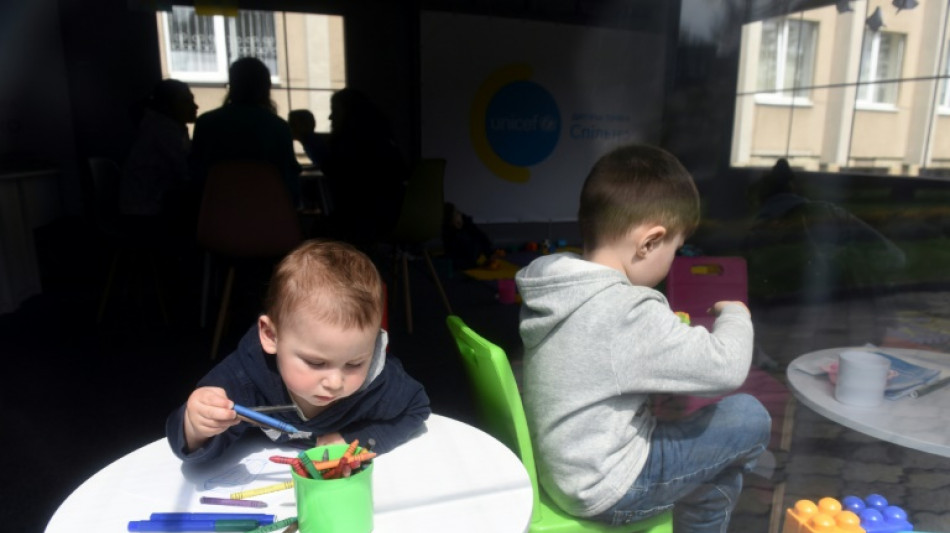
-
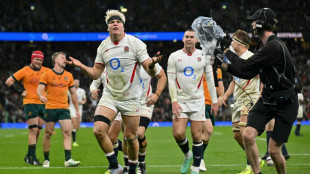 Pollock shines as England eventually overpower Australia
Pollock shines as England eventually overpower Australia
-
Villarreal crush Rayo to move second, Atletico beat Sevilla

-
 Sinner crushes Zverev to reach Paris Masters final, brink of No. 1
Sinner crushes Zverev to reach Paris Masters final, brink of No. 1
-
Pollock shines as England beat Australia in Autumn opener
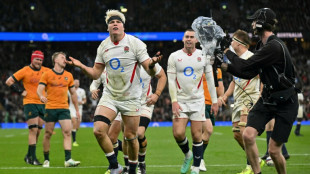
-
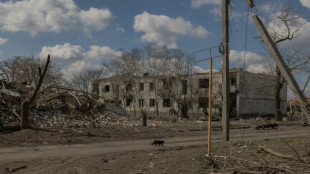 Ukraine sends special forces to embattled eastern city
Ukraine sends special forces to embattled eastern city
-
Arsenal cruise against Burnley as Man Utd held

-
 Pollock shines as England beat Australia 25-7 in Autumn Nations Series
Pollock shines as England beat Australia 25-7 in Autumn Nations Series
-
Gyokeres on target as leaders Arsenal beat Burnley

-
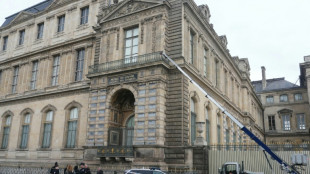 Woman charged over Louvre heist tears up in court
Woman charged over Louvre heist tears up in court
-
Diomande dazzles as Leipzig go two points behind Bayern
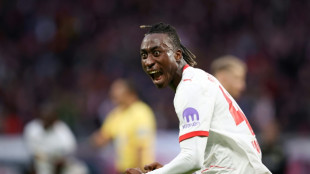
-
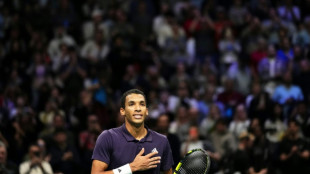 Auger-Aliassime downs Bublik to reach Paris Masters final
Auger-Aliassime downs Bublik to reach Paris Masters final
-
Villarreal crush Rayo to move second in La Liga

-
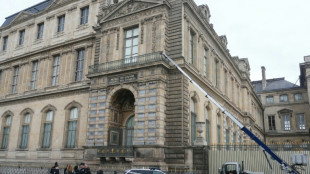 Female suspect, 38, charged in Louvre heist: AFP
Female suspect, 38, charged in Louvre heist: AFP
-
US not sending any high-level officials to COP30

-
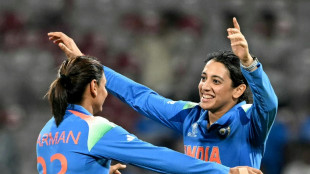 India captain Kaur sees World Cup final as possible turning point
India captain Kaur sees World Cup final as possible turning point
-
'Not out of the woods': What now for Britain's ex-prince Andrew?

-
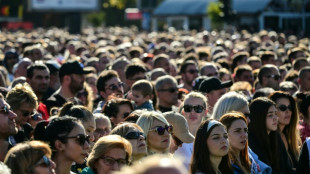 Tens of thousands of Serbians mark first anniversary of deadly train station collapse
Tens of thousands of Serbians mark first anniversary of deadly train station collapse
-
Tanzania president wins 98% in election as opposition says hundreds killed

-
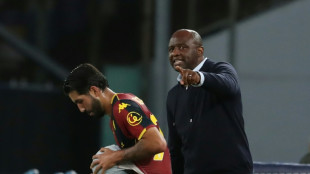 Vieira 'no longer' manager of troubled Genoa: club
Vieira 'no longer' manager of troubled Genoa: club
-
Tanzania president wins 98% of votes after violence-marred polls

-
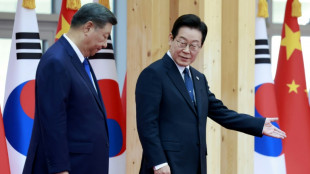 South Korea hosts Xi as Chinese leader rekindles fraught ties
South Korea hosts Xi as Chinese leader rekindles fraught ties
-
England's batting exposed as New Zealand seal ODI series sweep

-
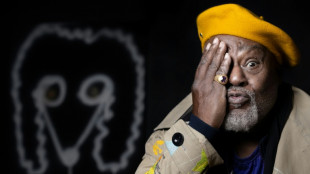 Funk legend turned painter George Clinton opens show in Paris
Funk legend turned painter George Clinton opens show in Paris
-
Traditional mass wedding held in Nigeria to ensure prosperity
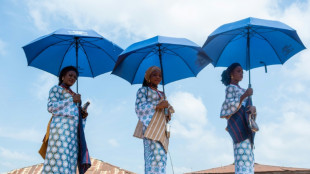
-
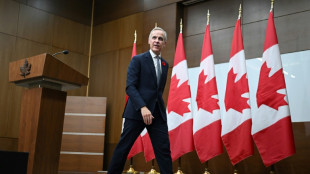 Canada PM says Xi talks 'turning point', apologises to Trump
Canada PM says Xi talks 'turning point', apologises to Trump
-
Iranian tech prodigies battle it out with robots
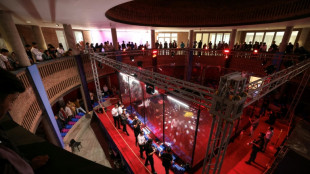
-
 Maldives begins 'generational ban' on smoking
Maldives begins 'generational ban' on smoking
-
Explorers seek ancient Antarctica ice in climate change study
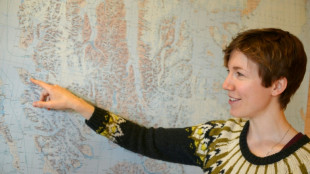
-
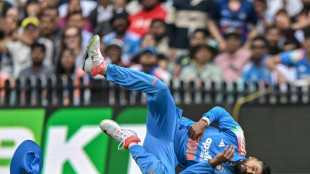 India's Iyer discharged from hospital after lacerated spleen
India's Iyer discharged from hospital after lacerated spleen
-
Serbia marks first anniversary of deadly train station collapse
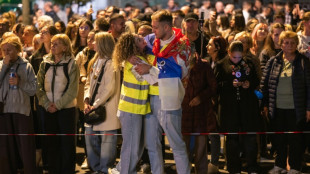
-
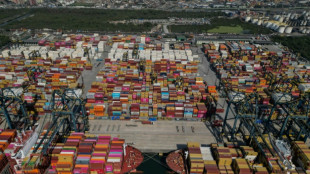 Latin America weathered Trump tariffs better than feared: regional bank chief
Latin America weathered Trump tariffs better than feared: regional bank chief
-
Bangladesh dockers strike over foreign takeover of key port
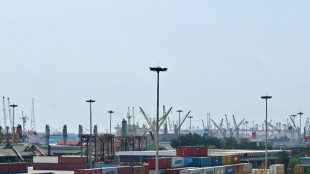
-
 Tanzania president wins election landslide after deadly protests
Tanzania president wins election landslide after deadly protests
-
Dodgers, Blue Jays gear up for winner-take-all World Series game seven

-
 Taiwan's new opposition leader against defence spending hike
Taiwan's new opposition leader against defence spending hike
-
Dodgers hold off Blue Jays 3-1 to force World Series game seven

-
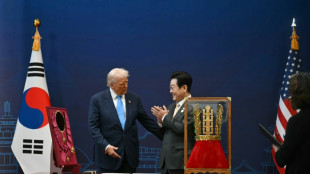 Crowns, beauty, fried chicken: Korean culture meets diplomacy at APEC
Crowns, beauty, fried chicken: Korean culture meets diplomacy at APEC
-
Panama wins canal expansion arbitration against Spanish company
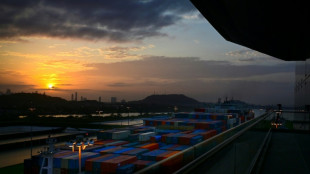
-
 Myanmar fireworks festival goers shun politics for tradition
Myanmar fireworks festival goers shun politics for tradition
-
China to exempt some Nexperia orders from export ban
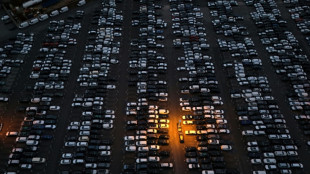
-
 Sixers suffer first loss as NBA Cup begins
Sixers suffer first loss as NBA Cup begins
-
China's Xi to meet South Korean leader, capping APEC summit
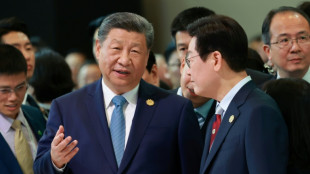
-
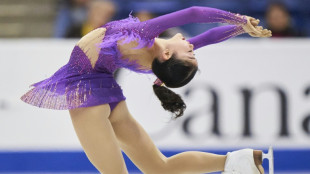 Japan's Chiba leads after Skate Canada short program
Japan's Chiba leads after Skate Canada short program
-
Finland's crackdown on undocumented migrants sparks fear
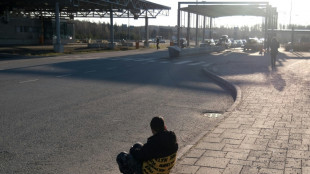
-
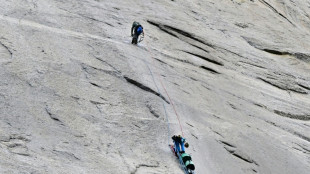 Climbers test limits at Yosemite, short-staffed by US shutdown
Climbers test limits at Yosemite, short-staffed by US shutdown
-
Gstaad gives O'Brien record 21st Breeders' Cup win

-
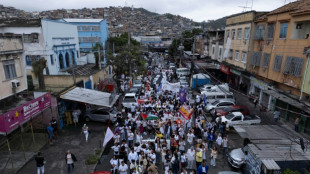 After the tears, anger on Rio's blood-stained streets
After the tears, anger on Rio's blood-stained streets
-
Sinner boosts number one bid in Paris, to face Zverev in semis
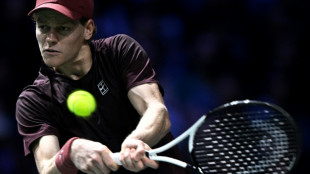
-
 Springer back in Toronto lineup as Blue Jays try to close out Dodgers
Springer back in Toronto lineup as Blue Jays try to close out Dodgers
-
Nationals make Butera MLB's youngest manager since 1972


In western Ukraine, displaced children play to forget war
Inside a play tent for displaced children in western Ukraine, 12-year-old Natan said his cat Marquisa was not acting normally, sleeping all day and staying awake all night.
Maybe it was because she was so stressed after all the Russian bombs on his home city of Mariupol, he said, as his fluffy white pet snoozed curled up in her carrier box.
Leaving her to rest, he joined other children playing, some stacking cubes under dangling origami, others colouring cartoon characters with crayons.
Russia's invasion of Ukraine has forced at least two thirds of the country's 7.5 million children to flee their homes, Save the Children says.
As the war grinds on into its 10th week, organisations working with children are increasingly concerned about the mental toll it is taking on younger Ukrainians and their parents.
Outside a municipal building in the western city of Lviv, Natan waited in the tent set up by the UN children's agency for his parents to finish government paperwork.
Under the canvas, a mother steadied her wobbly toddler in an avocado-themed jumpsuit. Natan crawled around the play mat, giving a younger child a ride on his back.
"He's always been sociable," said his mother Olena, returning hours later to retrieve him from the caregivers.
But that evening Natan and his parents were catching the train eastwards to start a new life in the capital Kyiv, and she believed that below his smiley demeanour her third-born was a little worried.
"He's afraid to go there. He survived the bombardment (in Mariupol), he knows what it's like," the 51-year-old medical assistant said.
- 'Find my mother and son' -
The family arrived in Lviv in early April after escaping the besieged port city of Mariupol, braving Russian shelling to run back from a shelter into their burning flat to rescue Marquisa the cat.
But sleeping on a schoolroom floor in Lviv has been far from ideal, and it was time to try their luck in Kyiv after the Russians withdrew from its devastated suburbs.
Since escaping Mariupol, Olena accompanied her 16-year-old daughter all the way to a youth hostel in Germany, she said.
But the mother-of-three said she had to remain in Ukraine.
The Russians had taken her 28-year-old son prisoner, she said.
And she had lost all contact with her mother in Mariupol, a city now almost entirely under Russian control after weeks of brutal siege.
"I can't just leave with my children. I need to find my mother and my son," she said.
As Natan and his parents walked off with Marquisa in her box, the young boy in a stripey jumper turned around and waved goodbye.
Just hours later, a Russian missile hurtled down onto the capital even as UN Secretary-General Antonio Guterres visited, killing one person.
- Photos left behind -
Child psychologist Natalia Tybura said she had seen many parents and children in the UNICEF tent since the conflict started.
Several came asking for advice about a son being more aggressive than usual, and she advised them to allow their child to vent through sport.
But many more parents, especially those who had escaped Mariupol, just wanted to confide in someone.
They often felt wracked with guilt at having been forced to leave a loved one behind, or desperately wished they had brought along more images of their family.
"What people regret the most, more than property, are the photos they could not take with them," Tybura said.
"Many people talk about family albums, and some were even forced to delete the images on their phones" to be able to cross Russian checkpoints out of the city.
Tybura said that among the worst hit, she had seen children who had fled Mariupol on foot with their families after weeks of being trapped inside the city.
"Their minds had switched to survival mode," she said.
But she warned trauma could well manifest itself at a later stage, and the country should brace itself for a mental health landslide when the war ended.
"There will need to be a lot of support," especially for families with members returning from the front, Tybura said.
M.Odermatt--BTB



